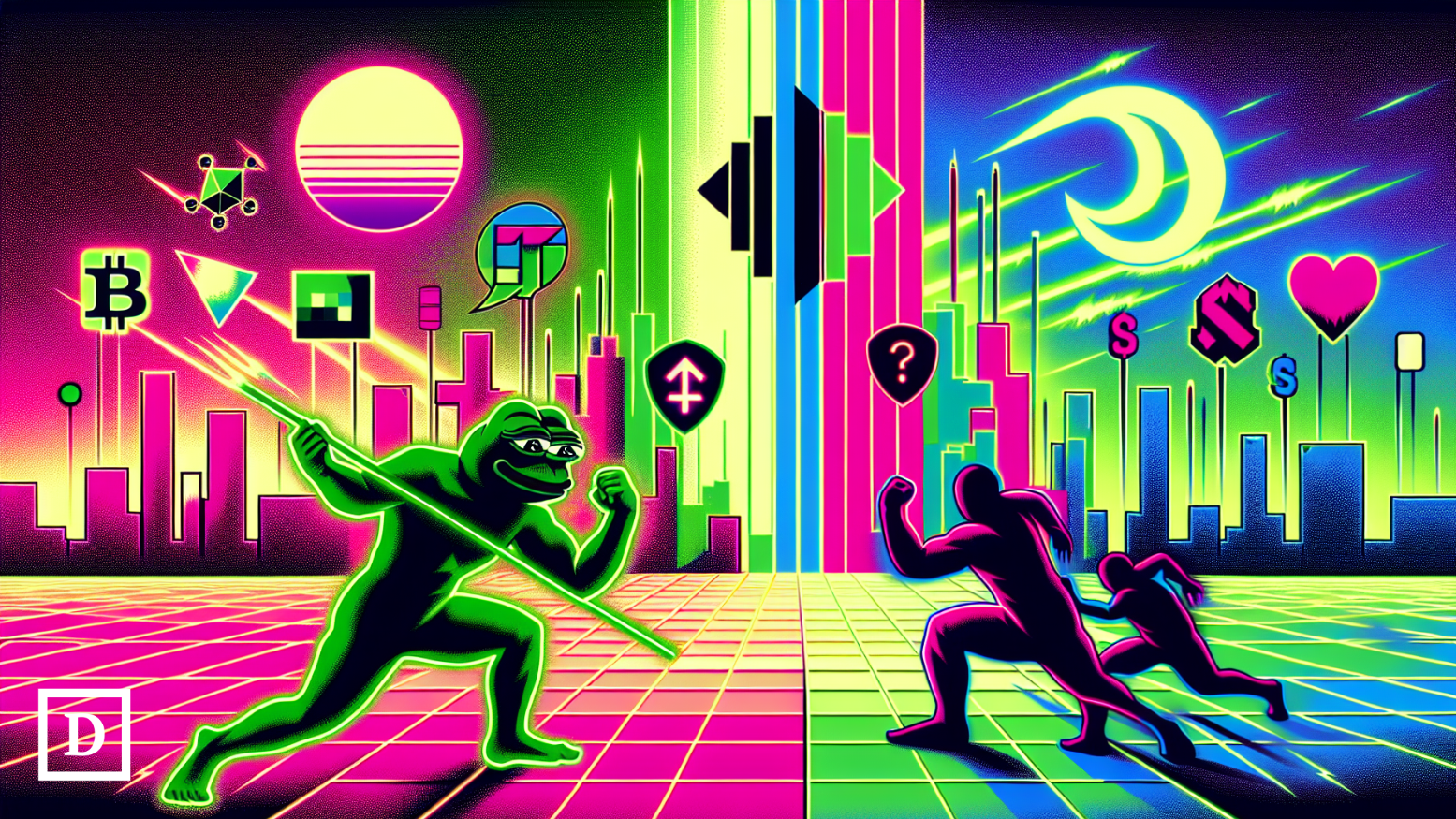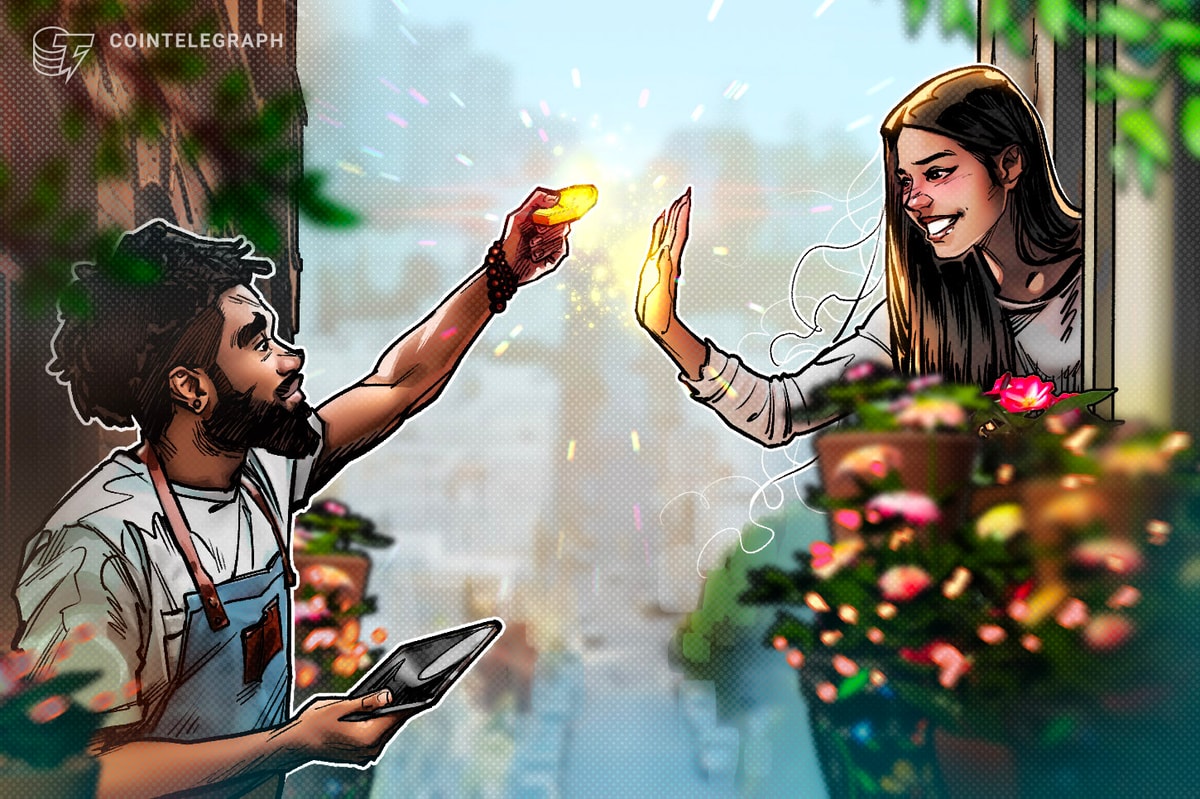Coinbase and Riot Games’ recent deal comes after years of contention between the two communities.
Last week, top United States-based centralized exchange (CEX) Coinbase announced its partnership with leading game development studio, Riot Games, potentially signaling an olive branch between two leaders in the gaming and crypto industries.
Riot is the developer behind games like League of Legends and VALORANT, which boast a combined registered player count of more than 160 million, with 46 million actively playing League of Legends (LoL) each month.

The move comes as a surprise to many in both industries, considering the general antipathy that the gaming community holds toward crypto and NFTs. The community’s hatred of crypto rails is often referenced, but there also is a misalignment over the specific cause of the rift between the two spaces.
Some blame GPU costs, some blame crypto’s tendency to promote gambling, and others speak out against the idea of gameplay monetization.
However, many of these claims can be refuted, as most major games promote microtransactions that are akin to gambling — such as card packs in EAFC Ultimate Team, and monetization of gaming assets in the Counter-Strike Go (CSGO) Market.
Regardless of the root of the issue, the gaming community’s tendency to dismiss crypto and NFTs has been made so apparent that gaming companies that attempted to enter the space in previous years have been borderline bullied by the gaming community out of their integrations.
Steam, the PC gaming platform with more than 130 million monthly active users went as far as to remove and ban the use of blockchain games on its platform in October 2021. Others such as Unity and Minecraft followed suit in 2022, which many in the gaming community celebrated.
Broken promises
Speaking to why gamers are generally known to resent the crypto industry, OhBaby Games founder Pasteur Tran told The Defiant that one of the problems is a failure to follow through: “Many NFT projects promised a lot and failed to deliver. They went as far as overpromising and just not delivering at all.” He argued that it reflects a broader trend in the crypto industry:
“This is like most crypto related projects – it’s a great deal of promise but no one is delivering – so now we have nothing really to stand on and have failed both the gaming side and the crypto side.”
About the gaming industry’s relationship specifically, Tran cited fear of the unknown: “Blockchain as a whole is hard to understand – remember your first time depositing into AAVE? – No one likes the unknown.”
Off-chain vs on-chain markets
As the gaming community unites behind its hatred of NFTs, it simultaneously celebrates the success of the CSGO skin market — the market for digital in-game items — which just hit a new all-time high of $5 billion according to PriceEmpire. Premium items are currently going for more than $100,000, or about the price of a CryptoPunk NFT.

While it’s not as easy to verify value as it would be with blockchain-based assets, the true valuation of the in-game item market may be higher depending on whether or not the dataset tracks all items in float or just items on the market.
Most crypto-integrated games have struggled to find sustained demand on the open market for their game assets and NFTs. There have been strong bouts of speculation, with the best example perhaps being Yuga Labs’ Otherside Plot NFT mint, which raised $600 million and resulted in a massive gas war, during which more than $157 million in ETH was burnt.
The all-time high sale for an Otherside Plot NFT was 625 ETH, or $1.5 million in May 2022, however, the plots have fallen drastically and currently boast a floor price of 0.24 ETH, or $550.
OhBaby Games is a more recent example of a crypto-adjacent game with a successful — but still off-chain — marketplace. The gaming studio features a flagship kart racing game similar to Mario Kart, as well as a card battler. The company raised $6 million in 2023 in a funding round led by crypto-native investment firm, E-Girl Capital, as well as crypto angel investor Santiago Santos.
OhBaby’s assets are inspired by well-known members of crypto social media, such as Cobie and Smolting, and are traded on an off-chain marketplace. The marketplace, which enabled fiat transactions on April 23, has seen in-game pet characters sell for as much as $2,500.
OhBaby’s founder said that traditional gaming companies are in the process of “testing the waters” and would rather see crypto native companies weed out what works and what doesn’t, before risking their own reputations.
Crypto gaming, on the other hand, simply needs to ship good games backed by strong communities in order to pick itself up off the ground. Tran concluded:
“Crypto gaming is at that point in time where our reputation is so low that everyone will believe you won’t make the game, and they will focus on your tokenomics more than anything. At that point, it’s no longer a game – you are just crypto only. So really we must rebuild what has been broken – ultimately by ourselves. Ship games, but take it at a pace that makes sense.”
Read More: thedefiant.io









 USDa
USDa  Gas
Gas  CHEX Token
CHEX Token  AgentFun.AI
AgentFun.AI  Tradable NA Rent Financing Platform SSTN
Tradable NA Rent Financing Platform SSTN  OriginTrail
OriginTrail  Wrapped Ether (Mantle Bridge)
Wrapped Ether (Mantle Bridge)  VeThor
VeThor  Nervos Network
Nervos Network  Mask Network
Mask Network  Animecoin
Animecoin  Solana Swap
Solana Swap  Siacoin
Siacoin  Tribe
Tribe  CoW Protocol
CoW Protocol  Neiro
Neiro  Elixir deUSD
Elixir deUSD  Launch Coin on Believe
Launch Coin on Believe  ORDI
ORDI  Celo
Celo  GoMining Token
GoMining Token  yearn.finance
yearn.finance  Steakhouse USDC Morpho Vault
Steakhouse USDC Morpho Vault  Casper Network
Casper Network  Stargate Finance
Stargate Finance  WEMIX
WEMIX  Holo
Holo  Qubic
Qubic  aixbt by Virtuals
aixbt by Virtuals  Echelon Prime
Echelon Prime  Diverge Loop
Diverge Loop  Harmony
Harmony  CoinEx
CoinEx  aelf
aelf  Aster Staked BNB
Aster Staked BNB  Binance-Peg SOL
Binance-Peg SOL  Horizen
Horizen  Polymesh
Polymesh  Blockchain Capital
Blockchain Capital  Ankr Network
Ankr Network  UXLINK
UXLINK  Zano
Zano  Chia
Chia  SKOR AI
SKOR AI  crvUSD
crvUSD  Fluid
Fluid  GMX
GMX